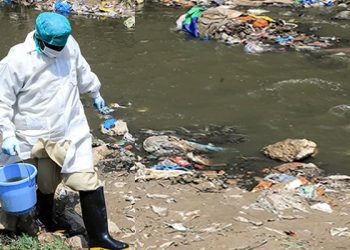Digital Hackathon for Disaster Risk Reduction “Master the Disaster” was held by the UNDP to generate innovative ideas related to preparedness and response for climate change-induced disasters and pandemic crises.
More than 70 participants from private and public sectors, development sector, and the provincial government, saw teams working with experts in the fields of technology, entrepreneurship, public health, and climate change attended the two day event.
Chief Technical Advisor, Climate Change and Resilience Abduvakkos Abdurahmanov who welcomed the participants on behalf of UNDP said that Sindh was particularly vulnerable to a range of natural hazards, such as droughts, floods, and heatwaves.
“We cannot stop natural events from happening, but the current crisis has shown that we can prepare better so that vulnerable populations are better protected,” he added.
Some of the ideas pitched during the two-day event ranged from the geographical mapping of plasma donors and portable compartments to increasing the capacity of hospitals to deal with the coronavirus outbreak, while one of the prize-winning idea to deal with locusts was to provide farmers with large nets to trap the insects and connecting them to the poultry feed industry.
UNDP’s National Project Coordinator for Disaster Risk Reduction Naeem Iqbal added that the Sindh’s health system was being rapidly overwhelmed and the nation’s food security is under threat due to the locust attack and the COVID-19 pandemic.
“I would like to encourage young people to focus on locust attacks as the latest issue that needs our attention,” he said.
Another idea related to COVID-19 was to create an online platform to connect students confined at home with other student volunteers through a “buddy system”, who can also connect affected students with mental health professionals if required.


















































